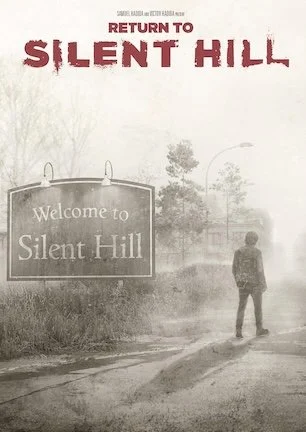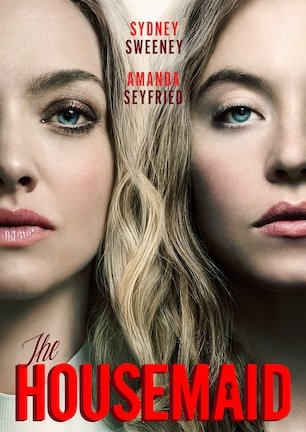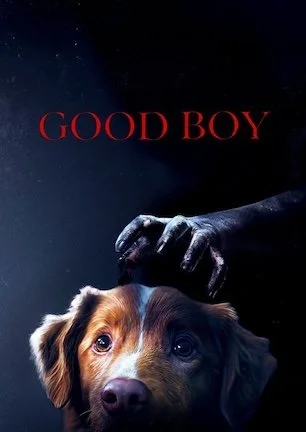Studio: Magnet Releasing
Director: Jovanka Vuckovic, Annie Clark, Roxanne Benjamin, Karyn Kusama
Writer: Jovanka Vuckovic, Jack Ketchum, Annie Clark, Roxanne Benjamin, Karyn Kusama
Producer: Todd Brown, Nick Spicer
Stars: Natalie Brown, Jonathan Watton, Melanie Lynskey, Lindsay Burge, Sheila Vand, Casey Adams, Breeda Wool, Angela Trimbur, Morgan Krantz, Christina Kirk, Kyle Allen, Mike Doyle
Review Score:
Summary:
Four female filmmakers spin tales involving a mysterious box, an inconvenient corpse, an ancient curse, and a devilish destiny.
Review:
Near the conclusion of part two, an hour focused exclusively on female comedians, of CNN’s docuseries “The History of Comedy,” Patton Oswalt’s blood pressure visibly rises as he laments, “the fact that it’s 2016, and ‘women in comedy’ is still a topic is so embarrassing.” Oswalt puts his hand to his forehead and apologizes for fuming with frustration, adding, “it just drives me so f*cking crazy.”
That’s how I feel about ‘women in horror.’ The marketing hook of “XX,” that it is an anthology of four short horror films (five including the animated wraparound) directed by, written by, and starring women, should be an unnecessary asterisk. Nevertheless, we are on approach to the third decade of the 21st-century and astonishingly, ‘women in horror’ is still regarded as novelty instead of norm. As if Jennifer Kent, Karyn Kusama, Mary Lambert, et al. haven’t silenced any suggestion that genre entertainment should exclusively be a boy’s club.
The four films of “XX” speak for themselves. Parenting from a mother’s perspective may be a predominant theme for three of the four. But there is no overt agenda or political statement being made here. This is simply good, smart, efficient horror from creators who happen to be women. And more power to them.
“XX” inverts the idea of “saving the best for last” by opening with the movie’s most effective and most affecting offering. Based on Jack Ketchum source material, Jovanka Vuckovic’s “The Box” doesn’t have a traditionally tangible narrative. It’s built around a maddening MacGuffin, making it essential to execute on eeriness alone, and Vuckovic absolutely smashes it with unsettling atmosphere.
Susan’s son Danny asks a stranger on the subway if he may peek inside the man’s gift-wrapped box. The man smiles, but Danny frowns after seeing the contents. From that point forward, Danny refuses to eat, and his claim that he isn’t hungry becomes contagious when Danny lets others in on the box’s secret.
Viewers upset with intentional ambiguity will be asking the wrong question of “what?” when they should be wondering “why?” “The Box” captures the frustration of communicating with a child in a chilling piece not soon to slip from the subconscious as your mind mulls its macabre mood and meaning.
If you’re familiar with the eclectic artistry of Annie Clark under her stage name St. Vincent, you’ll immediately recognize “The Birthday Party” as bearing her signature. Cat taxidermy props, hairstyles resembling plastic wigs, unusual kids’ party costumes, and a color scheme of punctuated blacks and rainbow pastels cover every element in black comedy quirk.
Mary discovers her husband David dead on their daughter’s birthday and, not wanting to spoil the party, decides to temporarily hide his body. Near misses of accidental uncovering culminate in a climax where David’s corpse picks an unfortunate moment to crash the festivities. (This punchline would pack more pop if the body were disgustingly decayed, instead of looking like a mere passed-out partygoer.)
“The Birthday Party” isn’t exactly cinematically disjointed, though it does bear marks of a first-timer experimenting. Abrupt cuts to/from black, odd audio stings interfering with interplay, and slow-motion are several techniques delivering different effects. That’s a lot of ground to bound around for a 15-minute piece and being more single situation than substantial story, “The Birthday Party” doesn’t extend an invite for repeated viewings.
“Don’t Fall” features four friends trespassing on cursed land. One of the four morphs into a monster during their campout and you can guess what happens next. That last bit might be a spoiler, but the setup is so simplistic, there’s no other way to summarize this segment.
Shot in three days on short notice when another short fell through, Roxanne Benjamin does a lot with a little in light of the circumstances. But this is a basic 12-minute creature feature that doesn’t matter much in the long run. Conceptually unambitious, “Don’t Fall” lingers least of “XX’s” four chapters.
Karyn Kusama makes no bones about “Her Only Living Son” being an unofficial reboot of “Look What's Happened to Rosemary’s Baby” (review here). Direct clues feature a flashback to a woman in blue referencing her unborn child as ‘little Andy or Jenny,’ just as Rosemary did. Indirect clues include crediting a character as Dr. Roman.
Christina Kirk takes on the role Mia Farrow made famous by channeling a younger Frances Conroy, giving Rosemary Woodhouse a frazzled mother persona as Cora, a woman on the run from her actor husband and an evil cult. Approaching his 18th birthday, Cora’s son Andy is transforming in unfathomable ways. And the relationship between mother and son is at a critical crossroads considering what comes next.
Minor mistunes, like an unusually exuberant Mike Doyle laying his secret Satanist shtick on thick, keep “Her Only Living Son” from being the standout segment anticipated. Yet Kusama uses a compelling frame to examine a mother’s love for a troubled teenager in a chilling allegory about challenging destiny with free will. Personally, my soft spot for the wonderfully weird Patty Duke and Stephen McHattie TV sequel will always have me accepting that film as true “Rosemary’s Baby” canon.
If “XX” is to become a series, which it could and should be, this first foray probably doesn’t have the depth or longevity to be the crown jewel. If anything is to come of this film’s weaknesses, it is the knowledge of how to build a bigger, bolder sequel sizzling even more sinisterly.
Still, the strengths of “XX” make it more than a mere curiosity. Execution is occasionally bumpy, though ideas remain intriguing, and creative passion is clear. Hopefully there comes a time when “XX” doesn’t distinguish female-focused horror, but is simply synonymous with outstanding anthology entertainment.
Review Score: 75






While the 110-minute runtime could use a trim to maintain more energy, “Redux Redux” is an easy recommend for anyone who enjoys low-key sci-fi.